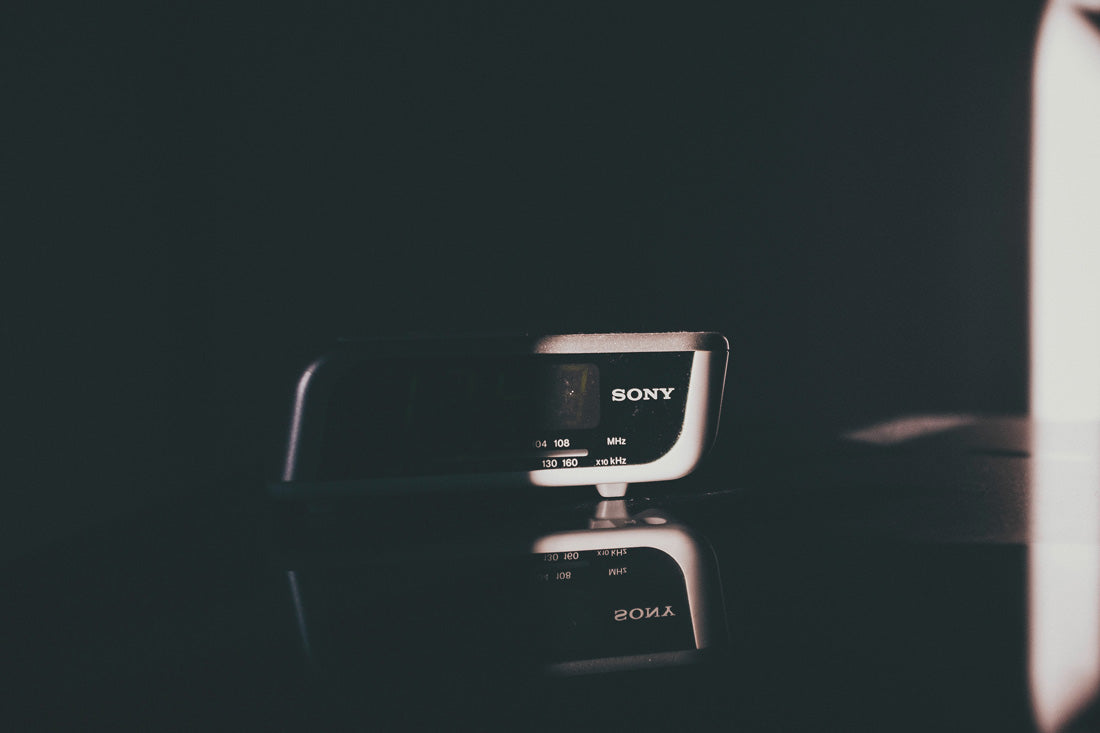Wake up without an alarm clock – How to do it

The most important points
- Waking up to the alarm clock ringing is a shock to your body, as your blood pressure and heart rate suddenly increase. It is very likely that your mood will also be affected.
- The average adult should sleep between 7 and 9 hours a day. Teenagers need more sleep, about 8 - 10 hours.
- In order to wake up without an alarm clock and establish a regular sleep-wake rhythm, a consistent evening and morning routine is essential.
- Avoid using electronic devices before going to bed. The blue light from screens delays your body's production of melatonin.
- If you want to develop a new sleep routine, be patient and consistent.
Waking up early isn't easy for everyone. We often scroll through social media feeds late into the night without noticing the time passing. The next morning, we regret not having gone to bed earlier. The alarm clock rings and jolts us awake - which is good on the one hand, otherwise we would have overslept the start of work. On the other hand, we are groggy and grumpy and drag ourselves through the day. Alarm clocks are so commonplace that most people can hardly imagine waking up without them.
Wouldn't it be nice to wake up at the right time without an alarm clock? We would be able to wake up at our own pace, feel more refreshed and have gotten the perfect amount of sleep. We would most likely be more productive and spend the day in a better mood.

SOMETIMES THE ALARM CLOCK IS NOT A GOOD IDEA
Using an alarm clock is so common that we rarely question its use. The fact is that the alarm clock interrupts the sleep cycle and can be harmful to health in the long term. This is confirmed by a study by the National Institute of Industrial Health in Japan: participants who were woken up by an alarm clock had higher blood pressure and a higher heart rate [1].
Using an alarm clock can also make you start your day in a bad mood and less likely to socialize. If you want to know how to wake up on time without an alarm clock, you've come to the right place.
HOW MUCH SLEEP DO I NEED?
How much sleep should we aim for? There is no one-size-fits-all answer to this question. Depending on their life situation, people need different amounts of sleep. For adults, this is usually between 7 and 9 hours, for young people, between 8 and 10 hours.
To find out if you're getting enough sleep, track your hours each day for a week. At the end of the week, add up the hours and calculate an average. Compare this to the thresholds for your age group and take steps to get more sleep if necessary. Getting more sleep can not only make you more social and outgoing, but it can also increase your productivity.
There are many reasons why you might not be getting enough sleep. Maybe you're out late or you keep putting off going to bed to watch TV. More serious reasons that are less easily fixed include stress, anxiety, chronic pain, sleep apnea, depression or parasomnias (such as sleepwalking).

BEFORE GOING TO BED
There are several ways to improve your sleep pattern and wake up without being jolted awake and feeling uncomfortable. There are several things you can do before you go to sleep that will help you wake up without an alarm.
Create a sleep plan
Falling asleep and waking up at the same time every day is the surest way to get 7 to 9 hours of sleep. When you establish a sleep routine, your body will start waking up at the same time every day.
Keep a sleep diary for at least a week, noting when you wake up and go to sleep. This will help you create your optimal schedule and get 7 to 9 hours of sleep without disrupting your circadian rhythm.
We often refer to the circadian rhythm as our internal clock. The circadian rhythm helps regulate our body temperature, hormone secretion and heart rate. A consistent sleep rhythm can therefore contribute immensely to your health.
There will be days when it's harder to stick to the schedule, such as weekends, but you should still make sticking to it your top priority. Consistency is key. If you get 7 to 9 hours of sleep on a regular basis, you'll wake up feeling more refreshed and able to enjoy your day more.
Introduce a fixed evening routine
In addition to planning when you're going to sleep and when you're going to wake up, you should also start preparing your body for bed. A good nighttime routine can help you recover from a long, busy day.
There are many things you can incorporate into your evening routine, such as reading a good book, taking a warm bath or drinking herbal tea. If you do these things regularly, your brain will associate them with it being time to go to sleep. Soon they will become a habit and help you wind down in the evening.
Try to focus on calming activities that don't stress you out. Avoid watching the news, watching a horror movie, or scrolling through your social media feed. Another tip: don't drink coffee after lunch.
It is best not to take a nap during the day, as this also disrupts your natural rhythm. Before you go to sleep, you should only eat a light dinner.
If one of these activities doesn't work for you, try another one. Finding the right routine can take time, but once you do, you'll notice how good consistency is for you. This will ensure you get your 7-9 hours of sleep.

Avoid blue light and screens
Blue light is the light emitted by screens such as laptops and cell phones. According to a study by the Cleveland Clinic [2], blue light can suppress melatonin production, keeping you awake. This makes it harder to fall asleep and can shorten your sleep time, making you more dependent on your alarm clock. It might also be a good idea to gradually dim the lights over the course of the evening to help you prepare for sleep.
Try to avoid electronic devices in the last 30 minutes before bed and avoid blue light during this time. It's probably best to keep your phone out of reach of your bed, as you may be tempted to take a quick look at your social media. Avoid doing things that stimulate your mind before bed.
B・SYNC ON can help
B・SYNC ON is the first clinically tested wake-up capsule. It supports natural waking - even without an alarm clock. The innovative combination of active ingredients with delayed release ensures that you get the optimal amount of sleep. The capsule is taken before going to bed and only releases its active ingredients around 7 hours later. You gradually wake up naturally and feel fresh, relaxed and well-rested.
If you take B・SYNC ON regularly and establish a solid sleep routine, you will benefit even more from the effects of the capsules. B・SYNC ON consists of only four natural ingredients, so you don't have to worry about any side effects.

WHAT TO DO WHEN YOU WAKE UP
Waking up to the alarm can be awful. You'll feel dizzy and disorientated at first, and in the worst case scenario, you'll suffer from tiredness and difficulty concentrating for the rest of the day. If you can't avoid the alarm, there are still a few tried and tested methods you can use to start your day off right.
Expose yourself to daylight
Morning sunlight is ideal for starting the day full of energy. As soon as you expose yourself to the sun, your body stops producing melatonin, which in turn makes you less sleepy. So get some sun first thing in the morning if you can.
Tyler Woodward, wellness expert at Eden's Gate, suggests sleeping with the curtains open rather than in a completely darkened room. This allows daylight to gradually enter your room and gently wake you up [3]. Of course, this is easier to do in the summer than in the winter. If you want to adjust your wake-up time to match the sunrise, keep in mind that you would wake up much later in the winter.
Exposing yourself to natural sunlight is generally good for your internal clock. Try to go outside in the morning and enjoy the morning light for at least 10 minutes - even (or especially) in winter. Very Well Health has found that sunlight in the morning makes it easier to fall asleep in the evening [4].
Have a fixed morning routine
An evening routine can help you signal to your body that it's time to sleep. A morning routine helps you start the day as well as possible - ideally when you wake up naturally and without an alarm clock.
There are endless things that can become part of your morning routine. For example, you can wash your face with cold water to stimulate blood circulation. To get your brain going, simple activities such as reading the newspaper, doing crossword puzzles or doing a jigsaw puzzle can help.
Another way to get your mind going is to interact with other people. For example, you can meet a friend for coffee or have a quick chat at the bakery. This type of social encounter also cheers you up and prepares you for the day ahead.
Music can also cheer you up. Listen to a few of your favorite songs first thing in the morning that will make you feel good and motivate you.
An important part of a good morning routine is exercise. You don't have to exercise every morning, but the Hopkins Center recommends getting 30 to 40 minutes of active exercise 3 to 4 times a week [5]. Regular exercise can improve sleep quality and combat insomnia or other sleep disorders. Jogging, cycling or doing yoga first thing in the morning will get your circulation going and more oxygen into your body, making you feel more awake. Another plus: exercise causes the body to release endorphins.
Whether you choose to do puzzles or go jogging, the key is to be consistent. Once you've found your routine, stick to it - even if you don't feel immediate effects. Your body needs some time to adjust to the new rhythm.
Healthy breakfast
You've probably heard many times that breakfast is the most important meal of the day. If you're one of those people who avoid breakfast because you don't have time in the morning or you're simply not hungry, you should change that as soon as possible.
Eating a regular, nutrient-rich breakfast will give you energy, wake you up, and balance your mood. Harvard Health recommends eating a breakfast rich in protein and complex carbohydrates. If you don't have time for a big breakfast, make a breakfast smoothie and drink it on the go [6]. While a morning coffee can temporarily wake you up, the energy boost will only last for a few hours.

FINAL THOUGHTS
There is no easy answer to the question, “How do I wake up without an alarm?” However, thanks to new innovative technologies like B・SYNC ON and developing a consistent routine, you can still manage to wake up in the morning without an alarm. The American Academy of Sleep Medicine recommends developing a routine that gives you between 7 and 9 hours of sleep [7].
When creating a new sleep routine, be patient and don't expect immediate results. Give yourself time to slowly adjust your circadian rhythm, and don't be afraid to experiment with different ideas or change your routine until it feels right. This may take weeks or even months.
FAQ
How can I manage to wake up at 3am without an alarm clock??
If it's a one-time 3am wake-up, go to bed early (between 6am and 8am) to ensure you get 7-9 hours of sleep. If you plan on waking up at 3am regularly, develop a routine that prepares your body clock to sleep and wake up on a specific schedule. Supplements like B・SYNC ON can help you wake up naturally without an alarm clock.
Is it better to wake up naturally or to the alarm clock ringing?
Waking up without an alarm clock is generally gentler and strengthens your biorhythm. A survey in Each Night shows that people who wake up without an alarm clock are more rested, feel more motivated and have a more positive attitude towards life [8].
Why do I have trouble waking up?
Sleep problems can manifest themselves in different ways. You may be suffering from sleep apnea, where breathing stops while you sleep, or sleep deprivation, where you don't get enough sleep. It is best to sleep between 7 and 9 hours each night.
SOURCES
- https://pubmed.ncbi.nlm.nih.gov/15732320/
- https://health.clevelandclinic.org/put-the-phone-away-3-reasons-why-looking-at-it-before-bed-is-a-bad-habit
- https://metro.co.uk/2022/05/08/how-to-wake-yourself-up-naturally-without-an-alarm-16600427/.
- https://www.verywellhealth.com/morning-sunlight-exposure-3973908
- https://www.hopkinsmedicine.org/health/wellness-and-prevention/exercising-for-better-sleep
- https://www.health.harvard.edu/staying-healthy/4-ways-to-boost-your-energy-naturally-with-breakfast
- https://aasm.org/resources/pdf/pressroom/adult-sleep-duration-consensus.pdf
- https://www.cell.com/current-biology/fulltext/S0960-9822(13)00764-1







